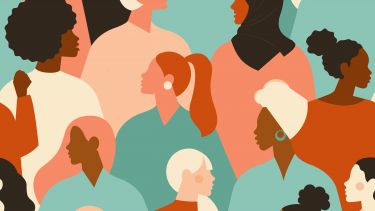Below are just some examples of researchers within the faculty whose world leading research is helping make a difference for us all.
Measuring the impact of mental health on employment in the UK
Professor Jennifer Roberts and her team are investigating how we can better analyse large scale datasets to improve our understanding of the relationship between mental health and work across England and Wales.
Gender-Justice and Digital Innovation in Africa
GeDIA unites women change-makers and their male allies to ensure women can fully participate in the shaping of Africa's digital futures. It is led by five female co-directors, including Dorothea Kleine (PI, TUoS) and Chisenga Muyoya (Co-I, Asikana and TUoS).
Our common aim is a gender-equal digital future in Africa.
How can radio empower women in the world’s poorest countries?
Dr Emma Heywood, Lecturer in Journalism, Politics and Communication in the School of Information, Journalism and Communication is working with communities in three of Africa’s poorest countries to assess the impact of radio on women’s rights and empowerment.
Green infrastructure: contributing to air quality, health and wellbeing
A new collaborative research project with Professor Anna Jorgensen, Dr Janice Astbury, et al, which explores how green infrastructure and other nature-based solutions contribute to air quality, health and wellbeing.
From daily actions to big changes: responding to climate change in the context of rapid urbanisation
According to Professor Vanesa Castán Broto, from the School of Geography and Planning and the Urban Institute, attaining low carbon cities depends on mundane actions; the kind of small shifts in everyday life whereby citizens themselves become the agents of change. These ‘ordinary actions' are crucial to deliver large-scale transformations and innovations needed to build low carbon cities.
The Canine Care Project
In 2020 Kirsty Liddiard launched the findings from The Canine Care Project. The project explored the experiences of disabled young people who have assistance dogs. It collaborated with Canine Partners, a registered charity that transforms the lives of disabled people through partnering them with assistance dogs.
The research team included academic researchers, Canine Partners collaborators, and Sally Whitney, a disabled young co-researcher who has a Canine Partner.
Where are the women in AI?
When it comes to making chatbots and humanoid robots, women appear regularly. They have names like Alexa and Siri – chatbots gendered as women, but designed by male dominated teams.
The team, including Dr Caitlin Bentley, Lecturer in AI-enabled Information Systems at the University of 91÷±≤•, will design a collaborative manifesto on how all women in AI wish to be (or not be) represented in a technology-mediated present and future.
Employing disabled people: how and why the workplace can be transformed
Disability researchers Sally Whitney, Lucy Watts (MBE) and Rachael Black have come together to create a set of resources to guide employers on employing disabled people.
Changing social media policy: how research is helping people to talk about mental health
In a new paper, Dr Ysabel Gerrard brings her experience as a sociologist together with her role as a member of the Facebook and Instagram Suicide and Self-injury Advisory Board to investigate how people talk about mental health on social media.
Understanding Civil War from Pre- to Post- War stages: A Comparative Approach
Dr Anastasia Shesterinina discusses her commitment to advancing research into civil wars and how this led to being awarded her recent UKRI Future Leaders Fellowship.

